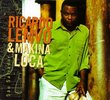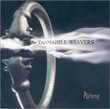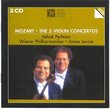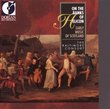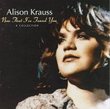| All Artists: Giuseppe Verdi, Richard Bonynge, Luciano Pavarotti, Joan Sutherland, Orchestra and Chorus of Welsh National Opera, Leo Nucci, Paata Burchuladze, Alastair Miles, Linda McLeod, Richard Morton Title: Verdi: Ernani / Pavarotti, Sutherland, Nucci, Burchuladze; Bonynge Members Wishing: 0 Total Copies: 0 Label: Decca Release Date: 3/17/1998 Genre: Classical Style: Opera & Classical Vocal Number of Discs: 2 SwapaCD Credits: 2 UPC: 028942141223 |
Search - Giuseppe Verdi, Richard Bonynge, Luciano Pavarotti :: Verdi: Ernani / Pavarotti, Sutherland, Nucci, Burchuladze; Bonynge
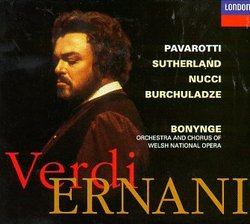 | Giuseppe Verdi, Richard Bonynge, Luciano Pavarotti Verdi: Ernani / Pavarotti, Sutherland, Nucci, Burchuladze; Bonynge Genre: Classical
|
Larger Image |
CD DetailsSimilarly Requested CDs
|
CD ReviewsSutherland Goes Out in Style Mike Leone | Houston, TX, United States | 10/21/2000 (5 out of 5 stars) "I have known and loved Joan Sutherland since 1964, when as a 12-year-old in Baltimore I became acquainted with her first recording of Lucia di Lammermoor. As an adult living in Texas, I had a number of opportunities between 1986 and 1989 to hear her sing in Houston, Dallas and New York. I would always go backstage after the performance and talk to her and Bonynge, but I would gravitate to Bonynge because I found Dame Joan quite formidable in her own quiet way.When I went to hear her U.S. farewell as The Merry Widow in Dallas in November 1989, I asked Bonynge after the performance what other recordings were "in the can." He said that there was an Adriana Lecouvreur and an Ernani, as well as some arias.The Adriana was delayed for a couple of years in being released, but once it was I figured the Ernani was soon to follow. Alas I was to wait until April 1998 to see the recording in the shops, almost 11 years after its being recorded in May of 1987. Any concerns I might have had that the recording was delayed because of problems with it were dispelled when I first put it on. I found it to be quite good and I still do.Sutherland had little contact with the role of Elvira during her career. She recorded "Ernani involami" in an aria recital around 1960, and let us not forget the televised concert from the Met she did with Horne and Pavarotti around 1980 where Horne took the bass role of Silva in a performance of the final trio. But even here, some 37 years after her debut, Sutherland is little short of magnificent. Granted, there is occasionally a beat on a sustained tone and her trill is not quite as clean as it once was, but overall she is in quite good voice and a joy to hear. She decorates the second verse of her cabaletta, which is something I rarely hear, even from much younger singers.Pavarotti's Ernani on the other hand is a known quantity. He appeared in a "Live from the Met" telecast of the opera in December 1983 which is still available commercially. There is little to choose between that performance and this one, as he is still in his considerable prime here. As he did in the telecast, at the end of Act II he performs the aria "Odi il voto" which Verdi wrote for the tenor Nicolai Ivanov in 1845, the year after the opera's premiere, as a replacement for the chorus "Pronti vedi li tuoi cavalieri." The aria really makes for a much more thrilling ending to the act and I'm surprised that more tenors don't insist on it.Leo Nucci and Paata Burchuladze as Ernani's two rivals Don Carlo and Silva, while both younger than the soprano and tenor, are fine artists and fit well into the cast. Nucci's "Oh de' verd'anni miei" is beautifully sung and Burchuladze's slightly Slavic sound adds an extra edge to "Infelice."One of the real surprises of the set is the conducting of Richard Bonynge. I sometimes found him to be a liability on his recordings, but he did improve over the years. Here, his conducting is so good, capturing all of the young Verdi's blood and thunder, that I found myself wishing he could go back and redo all his older recordings (if Sutherland could have been in them all I would have been even happier).I would have a difficult time choosing between this recording and my other top favorite, Leontyne Price and Carlo Bergonzi under Thomas Schippers on RCA Victor (my third favorite, the rough-and-ready Cetra version with Caterina Mancini and Gino Penno under Fernando Previtali, is sui generis). I would probably end up giving a slight nod to this recording just because of my special affection for Sutherland and my gratitude that the recording finally did come out.Highly recommended as an outstanding version of the opera and as a chance to hear Pavarotti in a role that suits him like a glove. But most highly recommended as a last recorded glance at Sutherland, still glorious in the twilight of her career." Very good, despite the age of the lead singers Thomas B. Dawkins | 08/20/1999 (4 out of 5 stars) "It would have been better if this opera was recorded by Pavarotti and Sutherland in the 70's, when they were in their prime (and perhaps could have had Milnes, instead of Nucci, as their Don Carlo). But it's still great to finally hear Ernani with the lighter voices which the opera calls for, rather than the Aida types who too often mangle it (although Price is excellent on RCA). And Pavarotti and Sutherland in decline are still better than most singers in their prime." A stunning interpretation John Cragg | Delta(greater Vancouver), B.C Canada | 08/31/2000 (4 out of 5 stars) "This is a highly interesting production. Joan Sutherland's voice had been deteriorating steadily in the 80's. Its distinctive elements were becoming more pronounced while her musicianship was deepening. Here she turns in a fascinating performance, full of character and beautiful singing. Though her voice may not have been what once it was, and some of the coloratura is approached more cautiously than it would have been a decade earlier when it would have been tossed off effortlessly, the overall effect is like listening to a first rate pianist playing on an upright. One may wish for a concert grand, but even so the performance is not to be missed, the musician being able to draw far more out of the notes than most others could even imagine. Furthermore, Elvira (Sutherland's character) is far from being all there is to this opera. Pavorotti, whose voice also shows some signs of wear though he is decade younger than Sutherland, produces a non-superficial as well as a brilliantly sung performance. Leo Nucci sings magnificently though with less inflexion than one might want, and to my ear Burchuladze also turns in a stellar performance with a characterization that brings out more than I had thought possible. These last two roles are far from minor.Bonynge's conducting and handling of the chorus is effective and not quirky. He also seems to have deepened over time. All together, in conjunction with his four strong principal singers, he draws more out of this somewhat second-rate Verdi than one might expect.The booklet contains a short essay (which does not mention the additional material added later by Verdi for the needs of particular singers,) a synopsis and the libretto with English translation. The track cues are indicted, but there is no separate track index.While, not surprisingly, the set has been promoted as a farewell star vehicle, it turns out to be a well-balanced effort. I can recommend it on its own grounds and I prefer it to the Gardelli version, which I also own."
|

 Track Listings (19) - Disc #1
Track Listings (19) - Disc #1